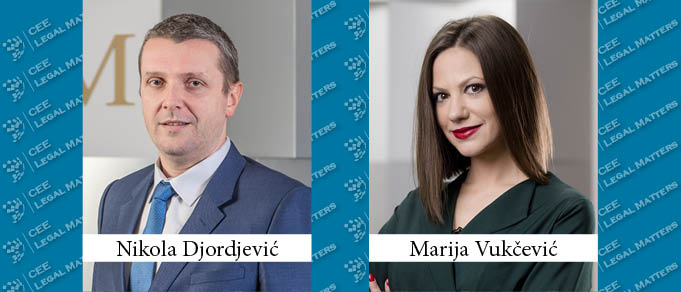The energy development strategy of the Republic of Serbia until 2025 with projections until 2030, as well as the Integrated National Energy and Climate Plan, which is
currently being developed and adopted, foresee an increase in the share of energy obtained from renewable energy sources in the energy balance of the Republic of Serbia
as a strategic goal.
This determination or goal, in addition to being supported by appropriate incentives from the Energy Law and now by applicable incentives from the Law on the Use of Renewable Energy Sources, is not accompanied by specific tax incentives.
Tax regulations almost do not mention renewable energy sources. Only the Value Added Tax Law, at the end of 2022, regulated one issue related to renewable energy sources and prescribed that the base for the sale of electrical energy by a supplier to a prosumer is the amount of compensation for the consumed electrical energy.
This actually represents the correction of the unfavorable tax treatment of prosumers who were introduced into our legal system by the Law on the Use of Renewable Energy Sources. Namely, the adoption of the Law on the Use of Renewable Energy Sources was not accompanied by the regulation of the tax treatment of prosumers, so initially EPS was obliged to calculate VAT on all energy, both the one it took from a prosumer and the one a prosumer actually took above those quantities that it produced by itself.
This solution reduced the feasibility of installing renewable energy sources, especially for individuals, so the change reduced the VAT obligation of the prosumers, burdening them only with the part that they actually take above the quantities they produced themselves. Although one could argue that the mere existence of incentives in accordance with the Law on the Use of Renewable Energy Sources supports the idea that there is no need for additional tax incentives, it seems that arguments in the opposite direction prevail.
First and foremost, we can talk precisely about additional incentives for individuals who want to become prosumers. Croatia has a different solution for individuals – prosumers – VAT for equipment is 0%. In Montenegro, the VAT rate is lower. The situation of individuals – prosumers can be compared to that of citizens who want to improve the energy efficiency of their buildings. In other words, to invest in insulation and replacement of windows in their apartments, houses, and buildings. Both groups could be entitled to a refund of VAT paid on equipment purchased for installation, in the case of becoming prosumer, or on materials purchased for raising energy efficiency.
It may even be necessary to consider a refund of VAT paid for the service of equipment installation or material installation. When it comes to energy efficiency, a VAT refund could be a substitute for cash subsidies that local self-governments and the Republic of Serbia provide for citizens whose property status does not justify state subsidies. Speaking of that group of citizens, one option to consider is a reduction of annual income tax for citizens for the amount (or corresponding percentage of the amount) invested in one of these two purposes. Or both purposes. However, it must be noted that, according to the current solution of annual income tax for citizens, a very small number of citizens are subject to paying this tax at all.
Although we have so far focused on individuals, there is room for a more comprehensive approach to achieving the goals proclaimed in the strategic documents cited at the beginning of this text, with respect to business entities as well. In order to prevent criticism that prescribing tax incentives, in addition to the existing incentives from the Law on the Use of Renewable Energy Sources, provide too many incentives for energy production from renewable energy sources, tax incentives can be given selectively - only to those producers who decide to sell energy on the market, without using incentives from the Law on the Use of Renewable Energy Sources.
In this way, it would be possible for companies to choose whether it is more profitable for them to apply for incentives from the Law on the Use of Renewable Energy Sources or to use tax incentives. One such tax incentive could be an exemption from property tax (or its reduction) for facilities that serve the production of energy from renewable sources. Also, the profit tax could be reduced for a certain period for performing this activity, provided that the appropriate conditions are met.
Maybe the same principle applied to research and development costs can be applied to this potential tax incentive. When we talk about the conditions that can be set for companies that would use the incentive for profit tax, for example, one of the conditions could be that the production equipment, after the expiration of the period for which it is used, is recycled in an appropriate manner, i.e. that it is handled in accordance with environmental protection regulations.
It is clear that this condition, considering that it comes after some time of using the incentive, would have to function as an obligation to pay the amount of tax that was reduced and the corresponding interest on that amount for the applicable period, in case it is not handled appropriately.
By Nikola Djordjevic, Partner, and Marija Vukcevic, Senior Associate, JPM Jankovic Popovic Mitic


